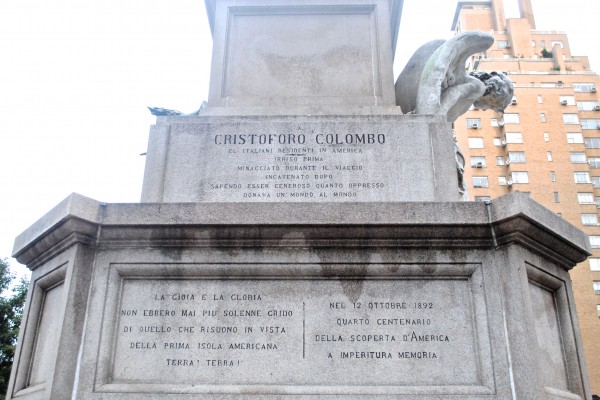Counterpoint: Keep Columbus in Columbus Day
October 8, 2014

Columbus Day comes around every year and we tend not to think much of it. Schools are closed, most people are off from work and retail stores across the United States offer those attractive 20 percent off sales. We celebrate the day simply because we don’t have school or work. We rarely think about why this day is a holiday. Many of us know that it is Columbus Day. Many of us think that Christopher Columbus discovered America. This is typically the extent of our knowledge on the topic. One U.S. city, Seattle, Washington, which is named after a Native American tribal chief, has joined other American cities in changing the name of Columbus Day to “Indigenous Peoples’ Day.” The Seattle City Council voted on Oct. 6 in favor of the new name, making Seattle the second major U.S. city after Minneapolis to make the switch.
The new name, “Indigenous Peoples’ Day,” refers to the Native Americans that were living in the Americas before the arrival of Christopher Columbus. According to the Seattle Human Rights Commission, Columbus Day, as it currently stands, celebrates an era of colonization and destruction of the indigenous people and their homeland. The new name, according to the Seattle City Council, better represents the history of the United States and the foundation of the city of Seattle. But will this change actually better represent history? Also, what are we actually celebrating on Columbus Day?
The name “Columbus Day” implies that we are celebrating one man for his work or accomplishments. For example, on Martin Luther King Jr. Day, we celebrate Martin Luther King Jr. because of his contributions to the civil rights movement. Christopher Columbus, on the other hand, was an explorer whose expeditions opened the door for European colonization and for the destruction of the Native Americans. The indigenous people of pre-Columbian America had been living in the Americas since before recorded history. As a result of European contact, nearly 99 percent of this population died over a few centuries. The Europeans not only brought foreign diseases that the Native Americans were unable to fight off, but they brutally murdered and killed off almost all of them. Some historians and commentators have even compared the Europeans to Nazi Germany during World War II.
However, when we celebrate Columbus Day, we are not celebrating the actions of one man. We are celebrating the effects that his voyage had on the course of history. One of those effects happens to be the eventual birth of the United States, as well as other modern states that exist in the Americas today. Yet, according to Seattle and Minneapolis, we are only celebrating the near extinction of the Native Americans as well as the brutality that they endured. So what should we do? Should we not celebrate the events that led to the birth of our nation? Should the name be changed in order to honor Native Americans?
Seattle, having changed the name to Indigenous Peoples’ Day, has rendered the holiday even less significant than it used to be. Most people do not know much about Christopher Columbus and even less about Native Americans. Maybe our public education system should implement more lessons into public schools about Native American cultures and history. Arguing against the name change may sound insensitive to the lost culture of Native Americans, and maybe we should honor the lost lives of the Native Americans too. However, changing the name of Columbus Day to Indigenous Peoples’ Day does not make much sense. Perhaps a new holiday that honors the Native Americans could be created that does not coincide with the voyages of Christopher Columbus and his arrival to the Americas on Oct. 12, 1492. This way, Native American cultures can be honored and remembered without directly associating them with Christopher Columbus. Furthermore, Columbus Day should continue to be celebrated because of the significant impact that his voyage to the Americas made on the history of our nation. Overall, both Columbus and Native Americans can be and should be honored.









